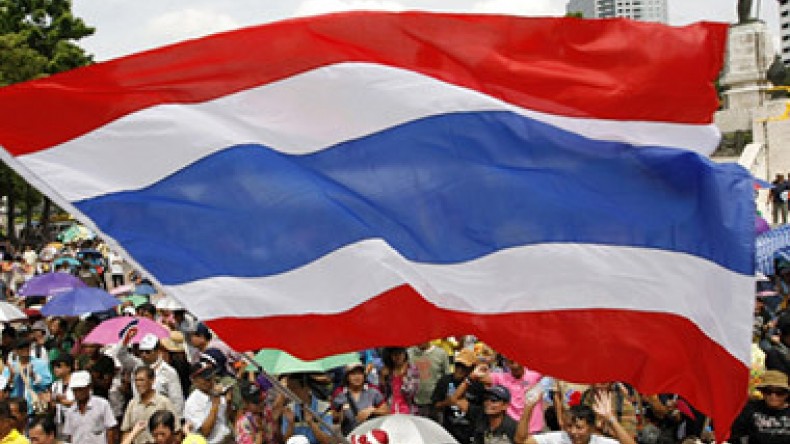
Thai crisis: no political force more popular than current leadership – expert
Thai anti-government protesters have forced their way into the finance ministry in the capital Bangkok, threatening to seize more government buildings. The protesters, who began their action over the weekend, want the government of Prime Minister Yingluck Shinawatra to step down. The protests have been triggered by a controversial political amnesty bill. Opposition activists insist that the bill would have allowed ousted leader Thaksin Shinawatra, the current Prime Minister's brother, to return to Thailand without serving a jail sentence for corruption. The bill failed to get the green light from the Senate earlier this month. Yingluck's government has repeatedly argued that the legislation was a necessary step towards reconciliation. Critics, in turn, said that it would allow human rights abuses, such as the killing of civilian protesters, to go unpunished. Meanwhile, Yingluck has told reporters that she would neither resign nor dissolve parliament in the face of the protests. Saksith Saiyasombut, a Thai political blogger and foreign correspondent, in an interview to Voice of Russia, shared his stance on the problem.
Forecasting the further situation in Bangkok, Mr Saiyasombut said, “It all comes down to what the protesters will do next. As far as the protest leaders have told, they are going to stay out as this is a part of a three-day protest. And it also comes down if whether or not there is violence. Of course, if there is violence, things can deteriorate even further into chaos. But furthermore, it's also very important to see how the government will respond: as you said, PM Yingluck would probably not move very much at this point.”
Mr Saiyasombut said it was unlikely that the government will actually crack down on protesters, “It probably has to be instigated from the other side, until the security officials will crack down. That is a change from what we've seen in the past where the security authorities had only a first-shot policy but I think the authorities, the security officials have learnt from the past and will try not to be instigated,” – he said.
Speculating on whether the government would ease the situation or increase tension, Mr Saiyasombut said if depended “on the ultimate goal.”
“Every time they have not expressed an ultimate goal other than this government to be toppled, but not saying how, not saying by what measures,’ – he said. One possible other political solution would be, according to Mr Saiyasombut, a vote of no-confidence in Parliament later this month, but how important or how big a role this will is yet to be seen.
Mr Saiyasombut pointed out that at the moment there is no political force more popular than the current political leadership, “The current government of Yingluck Shinawatra and the ruling Pheu Thai Party are always an electoral force that always wins and it has always won the elections. And that is the problem of the protesters and of the political opposition. They have not been able to win any election whatsoever.”
He said that the main frustration of the political opposition is that they haven't been able to win over people outside Bangkok, to pull the rest of the country on their side.
Concluding Mr Saiyasombut said it is hard to say whether the current turmoil will lead to the resignation of Prime Minister Yingluck Shinawatra, “I'd say it all comes down to what will happen tonight and what will happen in the next few days and whether or not there will be any violence or if this protest will escalate or just fizzle out.”
Newsfeed
Videos






























